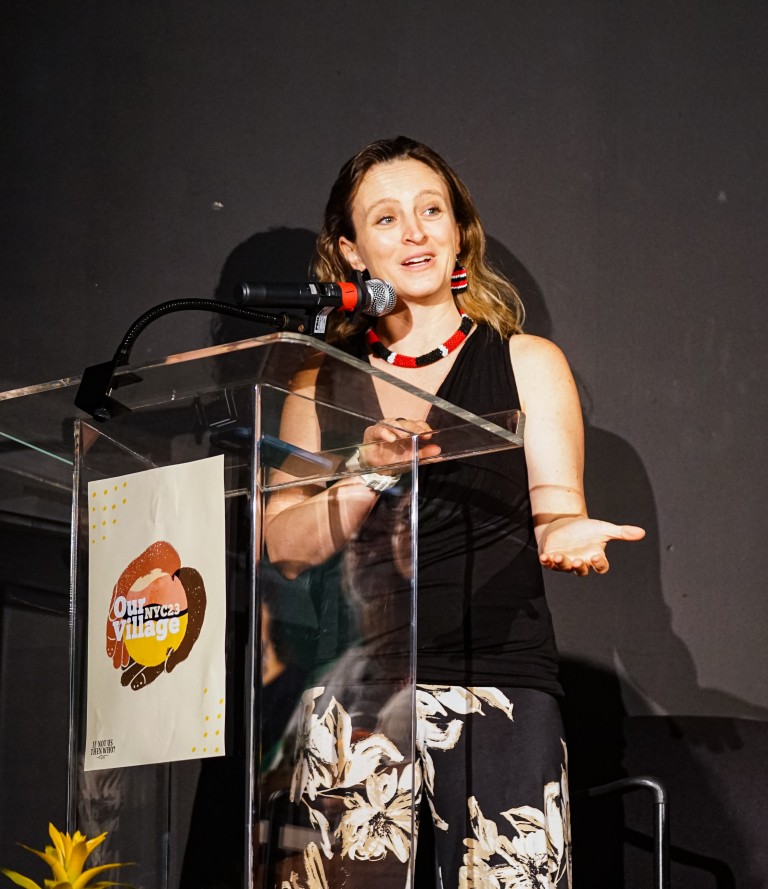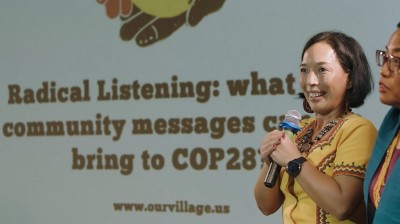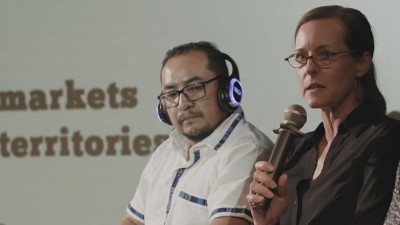Nature is a Subject of Rights
Transcript
I have been working with the Yasuni National Park, a work in doing research and then working with all the initiatives of the Yasuni initiative to leave fossil fuels in the ground. And when that was taken away from us, I became a Yasunida and we collected the signatures as part of that amazing process that took ten years to finally, share that news again, because I feel that now is we’re towards the end of Climate Week, and we want to really leave with a feeling that is something is happening. And what I want to bring today is a message of hope and message that we’re doing it. That is happening really. And a month ago in August 20th in Ecuador, as you all know, we were able to, with 59% of the population, vote in favor of leaving fossil fuels in the ground, in the ITT-block. And that’s amazing to us. That same day, we actually were able to leave it to prohibit mining in my city in Quito, a forest mining in full-scale metal mining. And that’s because and I can say that with a lot of confidence, we have had 15 years of recognizing that nature is a subject of rights.
The recent milestone in Yasuní National Park, Ecuador, on August 20th, saw 59% of the population voting to leave fossil fuels in the ground, specifically in the ITT block. This significant achievement aligns with the broader success of prohibiting mining, including forest and full-scale metal mining in Quito, underscoring a 15-year journey in recognizing nature as a subject of rights.

What is climate justice?
The systems of oppression that we all live in right now are based in domination and they are all interconnected. Only by tackling the systemic violence that is embodied in capitalism, racism, sexism and others can we truly fight the climate crisis


